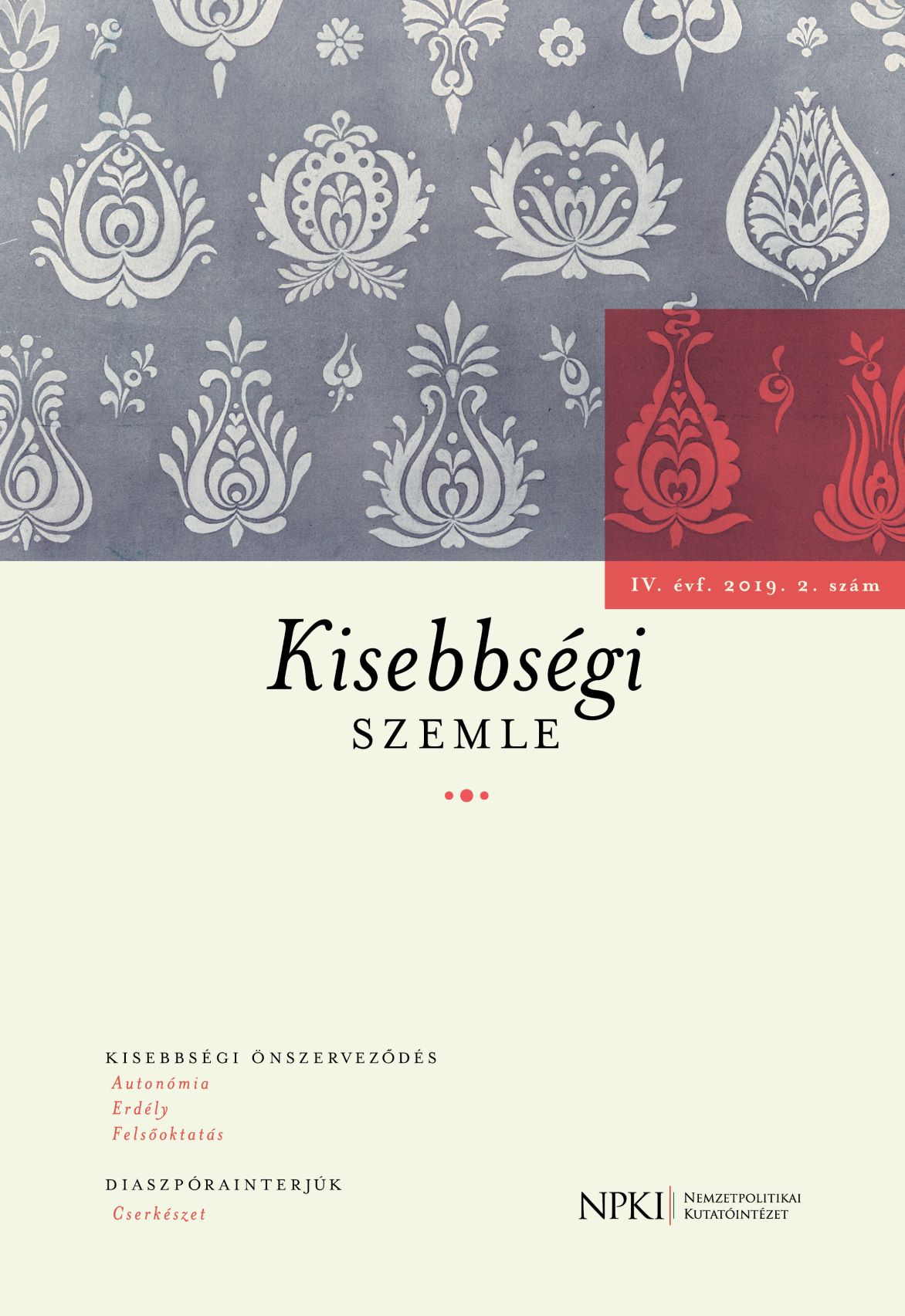Erdélyi magyar útkeresés és politikai önszerveződési formák az impériumváltás időszakában
The Hungarian Research for Self-Organization Strategies in the Transition Period of Changing Sovereignties in Transylvania
Author(s): János FodorSubject(s): Politics / Political Sciences, Politics, Social Sciences, Political Sciences, Sociology, Politics and society, Ethnic Minorities Studies
Published by: Nemzetpolitikai Kutatóintézet
Keywords: Minority Self-Organization;Hungarian community;Transilvanya;Romanian political system;national Hungarian Party;
Summary/Abstract: This paper tries to reflect on the issue of the self-organizing Hungarian political elite in Transylvania during the period of changing sovereignties between 1918–1922. By the autumn of 1918, it became clear that the Austro-Hungarian Empire had lost the war, and in 1920, the Treaty of Trianon awarded Transylvania to the Romanian Kingdom. Several international and internal political processes rendered the chronology of 1918–1920 especially intense and cluttered. The Empire suffered not only a military but also a political collapse. With the dissolution of the dual monarchy, the regime change was followed by the change of political rule. Furthermore, as a result of Wilson’s 14 points, various national demands made their appearance. Proposing a democratic system, the Károlyi government dealt unsuccessfully with the national issue. The Hungarian community living in Transylvania had to come up with different political strategies to adapt with the changed situation. One of these strategies was to hold national assemblies (similar to the Romanian assembly on 1st December at Gyulafehérvár/Alba Iulia), in Marosvásárhely (Târgu-Mures), and Kolozsvár (Cluj), but both proved to be unsuccessful because of the Romanian military presence. The second political attempt was to integrate and interact with the Romanian political system, as fast as possible (starting in 1919), however, this approach did not have the necessary support of the majority of the Hungarian political elite. The final debate followed the signing of the Trianon treaty, and resulted in giving up political passivism. This led to the 1922 elections, which resulted in the Hungarian community’s organization its own legitimate national Hungarian Party.
Journal: Kisebbségi Szemle
- Issue Year: 4/2019
- Issue No: 2
- Page Range: 33-48
- Page Count: 16
- Language: Hungarian

